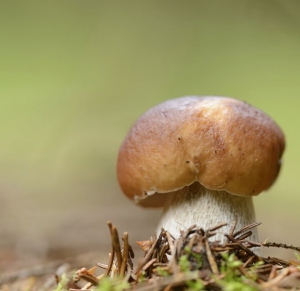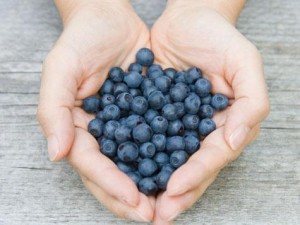Medicinal Mushrooms to Help You Weather the Winter Months
 Few natural medicines in the practitioner’s repertoire can promise the wide-ranging benefits of medicinal fungi.
Few natural medicines in the practitioner’s repertoire can promise the wide-ranging benefits of medicinal fungi.
Apart from their wholesome nutritional value, “medicinal mushrooms” and fungi have a long and respected history in many cultures.
Some references to medicinal mushrooms date back thousands of years. Even Otzi, the mummified Iceman uncovered in the European Alps, had fungi in his possession, purportedly for their health benefits.
The most widely acclaimed medicinal mushrooms hail from Asia. The ancient Chinese dynasties prized mushrooms such as reiishi (alsoreishi), shiitake and white wood ear fungus (or snow fungus).
Today, fungi are used to provide immune, cardiovascular, kidney, liver, lung and nerve support. They are also receiving serious attention as possible therapeutic tools to improve the effectiveness of chemo- and radiotherapy, and to lessen some of the serious side effects.
Anti-Tumour and Other Biological Effects
The polysaccharides in medicinal fungi (namely, polysaccharide-Krestin (PSK) and polysaccharide-peptide (PSP) from Trametes versicolor) are used in various cancer treatments.
When somebody has a tumour, the tumour antigens can manipulate their immune system to assist tumour progression.
PSK appears to act in a way to suppress tumour growth and modulate the immune system, not by being directly cell-toxic, but by normalising antigen presentation and returning the immune system to active surveillance against tumour antigens.
Hence, this mushroom is truly a “biological response modifier”, and as such, may be able to mitigate the immunologic side effects of cancer treatments and enhance disease-free survival.
Immune Stimulating
The immune-stimulating/modulating effects of PSK, PSP and other fungal β-glucans also account for the anti-infective properties of medicinal mushrooms.
Other pharmacologically active compounds in medicinal fungi include the triterpenes and ergosterol.
Medical mushrooms have many constituents that give the appropriate signals to instruct your immune army.
Candida
Some clinicians have been led to believe that fungi cannot be used in patients with Candida spp. infections. However, a closer examination of the disease process shows this practice to be unnecessary.
Candida is a commensal organism which only changes into its invasive (‘infectious’) form in a person whose immune system is compromised, and requires sugar (not fungi) to grow.
In actual fact, other yeasts such as Saccharomyces boulardii, and the mushrooms shiitake and turkey tails, have shown anti-candida and immune-enhancing properties and can be used to treat a candida infection or overgrowth.
As research advances in the study of medicinal fungi, the great hope is that the full extent of their therapeutic properties will soon be identified and incorporated into current medical paradigms.
Mmm…white wood ear fungus…sounds delicious!
It’s funny to think that an organism that fruits from the head of dead insect larvae, or sprouts from dead trees, or even grows in the familiar mushroom form can be used to promote health. But it definitely can.
Fungi are susceptible to many bacterial and viral bugs that also plague humans. Therefore, the intricate defence mechanisms that they have developed against these invaders can be harnessed for human use.
Although there are many mushrooms that have a long history of use in traditional medicine systems, or have been scientifically researched for medicinal use, the Therapeutic Goods Administration (TGA) has, at this time, only approved six fungi for therapeutic use in Australia.
TGA-approved mushrooms and fungi are Lentinula edodes (Shiitake), Ganoderma lucidum (Reiishi, reishi), Trametes versicolor (Turkey tails mushroom, coriolus), Polyporus umbellatus (Zhu ling, umbrella polypore), Cordyceps sinensis (Caterpillar mushroom, cordyceps), and Tremella fuciformis (White wood ear fungus).
All six of these medicinal mushrooms can be found in a new Bioceuticals product called Mushroom 6.
Mushroom 6 is Australia’s first therapeutic PSK mushroom complex and is ideal for supporting the immune system, particularly during prolonged illness.
Medicinal fungi offer wide-ranging, beneficial and powerful actions which can safely be used for immune, cardiovascular, kidney, liver, lung and nerve support, and most excitingly, as an adjunct to chemotherapeutic regimens to reduce the toxicity and side effects of anti-cancer drugs.
Many medicinal mushrooms have overlapping health benefits, along with their own unique qualities.
For instance, shiitake (Lentinula edodes) and reiishi (Ganoderma lucidum) are both used extensively for immune enhancement; however, shiitake also exhibits anti-candida and anti-ageing effects, while reiishi is a prized adaptogen often used for allergies, chronic hepatitis B and diabetes.
So it is better to take medicinal mushrooms on their own or in combination? It depends.
Some medicinal fungi products have individual properties that may be better administered on their own.
For example, PSK and PSP polysaccharides, both found in Trametes versicolor, are used in the treatment of various cancers including lung cancer and both oestrogen receptor-positive and oestrogen receptor-negative breast cancers and in these cases, the use of single entity products may be indicated.
However, a comprehensive approach to, say, cholesterol reduction would incorporate the combination of Cordyceps sinensis, Tremella fuciformis and Lentinula edodes as all these mushrooms have compounding effects on lowering cholesterol.
To support general health, immune function, and overcome fatigue, adrenal stress and inflammation, all six TGA approved medicinal mushrooms are indicated.
Did you know?
Many notable pharmaceutical drugs have been derived from fungi. For example, Penicillin and the statin drugs lovastatin, and mevastatin, were isolated from the fungal kingdom.
If you want to bolster the immune system (the way the Chinese often do) try mushrooms with your veggies and brightly coloured fruits.
But forget those bland, almost tasteless specimens that you find in the typical mushroom omelet. Your immune system craves exotic mushrooms, notably shiitake and reishi.
“Shiitake mushrooms strengthen the immune system,” notes herbalist Christopher Hobbs, L.Ac., the author of several authoritative herb guides, “reishi mushrooms build up bone marrow, where white blood cells are made.”
Click here for more information on Bioceuticals Mushroom 6.
Further Reading:
- Cancer
- How Important is Vitamin C?
- How to Prevent the Flu with Good Nutrition
- Chronic Fatigue Syndrome
- Selenium: The Cancer Cutting Mineral
- Probiotics – Exploring Species and Strains
References
Aggarwal BB, Shishodia S, Sandur SK, Pandey MK, Sethi G. Inflammation and cancer: how hot is the link? Biochem Pharmacol 2006 Nov 30;72(11) 1605-1621.
Borchers AT, Krishnamurthy A, Keen CL, Meyers FJ, Gershwin ME. The immunobiology of mushrooms. Exp Biol Med (Maywood) 2008 Mar;233(3) 259-276.
Chen J, Seviour R. Medicinal importance of fungal beta-(1–>3), (1–>6)-glucans. Mycol Res 2007 Jun;111(Pt 6):635-652.
Cordyceps. Natural Medicines Comprehensive Database, 2010 May 10. Viewed 11 May 2010 http://www.naturaldatabase.com/
Fisher M, Yang LX. Anticancer effects and mechanisms of polysaccharide-K (PSK): implications of cancer immunotherapy. Anticancer Res 2002 May-Jun;22(3):1737-1754.
Holliday J, Cleaver M. On the trail of the yak: ancient cordyceps in the modern world. 2004 June. Viewed 7 May 2010 www.earthpulse.com/cordyceps_inc/ cordyceps_story.pdf
Saljoughian M. Adaptogenic or medicinal mushrooms. US Pharm 2009;34(4):HS-16-HS-18.
Smith JE, Rowan NJ, Sullivan R. Medicinal mushrooms: their therapeutic properties and current medical usage with special emphasis on cancer treatments. Strathclyde: Cancer Research UK, 2002.
Stamets P. Novel antimicrobials from mushrooms. HerbalGram 2002;54:28-33.
Standish LJ, Wenner CA, Sweet ES, Bridge C, Nelson A, Martzen M, et al. Trametes versicolor mushroom immune therapy in breast cancer. J Soc Integr Oncol 2008 Summer;6(3):122-128.
Thompson IJ, Oyston PC, Williamson DE. Potential of the beta-glucans to enhance innate resistance to biological agents. Expert Rev Anti Infect Ther 2010 Mar;8(3):339-352.
Tsang KW, Lam CL, Yan C, Mak JC, Ooi GC, Ho JC, et al. Coriolus versicolor polysaccharide peptide slows progression of advanced non-small cell lung cancer. Respir Med 2003 Jun;97(6):618-624.
Waites MJ, Morgan NL, Rockey JS, Higton G. (2001). Industrial Microbiology: An Introduction. Oxford: Blackwell Science. pp. 169–70. ISBN 0-632-05307-0. http://books.google.com/?id=eVYT7d_v8uwC&lpg=PA170&dq=cyclosporin%20griseofulvin%20cephalosporin%20ergometrine&pg=PA170#v=onepage&q. Retrieved 07.12.2010.
Zhou S. Clinical trials for medicinal mushrooms: Experience with Ganoderma lucidum (W.Curt.:Fr) Lloyd (Lingzhi mushroom). Int J Med 2005;7(1-2):111-118.








